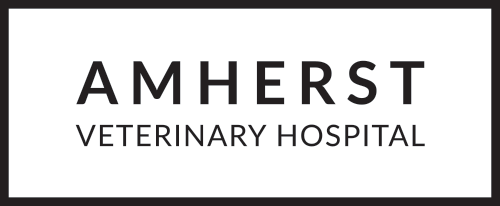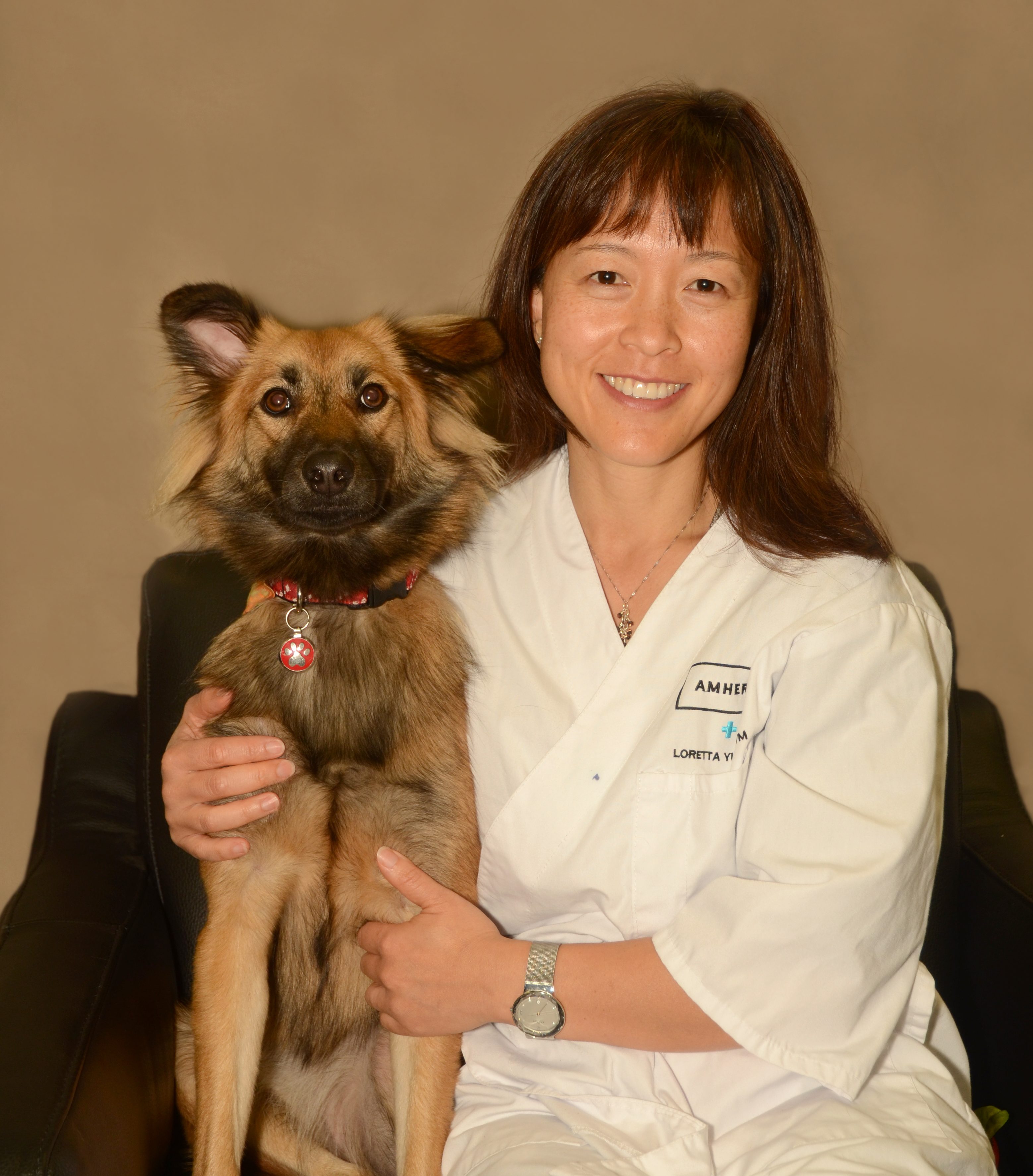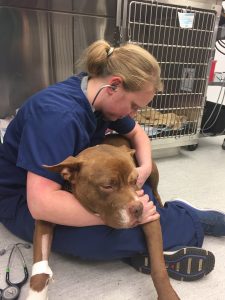Choosing a veterinarian to take care of your pet’s medical needs is an important decision. After all, your pet is family, and we know that choosing proper care is an important step. At Amherst Veterinary Hospital, we pride ourselves on long-term staff who are invested in caring for your animals, top-notch service in a full facility hospital, and compassion at every step. But for those in the initial stages of searching for the right veterinarian, you will want to consider these factors:
- The experience of the veterinarian. Is the veterinarian experienced in treating the species of your pet? How many years has your veterinarian been in practice? Does your veterinarian have specific areas of interest, knowledge or special training?
- Education and qualifications of the support staff. When your pet needs to stay at the hospital for x-rays, blood work, intravenous fluids or medication, who are the people doing these technical tasks and ensuring your pet is cared for throughout the day? There are various people who are a part of your pet’s care, and knowing and understanding their qualifications is vital.
- Characteristics of your veterinarian. Just like human doctors, personalities vary with the individual and you may be drawn to a more talkative and extroverted veterinarian versus a more serious and quiet one. At the end of the day you should feel comfortable talking to your veterinarian.
I do believe, however, that there are universal characteristics that all veterinarians should display.
a) Shows compassion towards you and your pet
b) Handles your pet with respect and care
c) Is willing to answer your questions
d) Is flexible with developing a treatment plan based on medical and financial constraints for your individual pet
e) Is willing to seek other opinions from the veterinary community
At Amherst Veterinary Hospital we believe in a team approach to veterinary care for your pet. This starts with our receptionists that ensure that our day flows smoothly and efficiently and that our urgently sick animals are scheduled accordingly, so we have sufficient time to care for them. We also have a team of veterinary assistants that work in the back to ensure your pets are walked, fed, given water, bedding and TLC throughout the day. They are also trained to assist in restraint of your pet during examinations and medical procedures to ensure everyone, including your pet, is safe. It is common to see an assistant or technician writing up their files while giving a pet extra cuddles on their lap.
Most importantly, at Amherst Veterinary Hospital we only hire certified animal health technologists to perform the nursing care for your pet. Animal health technologists are equivalent to the nurses at a human hospital. They are the people who collect blood, analyze lab samples and prep our pets for surgery and monitor your pet while under anesthesia. To become a certified technologist you must complete a 2 year college diploma course. During those two years the students take courses in pharmacology, clinical pathology and physiology, to name a few. They are taught techniques in radiology and dental prophylaxis, concepts in sterility and much more. The care your pet receives is our top priority.
Many pet owners believe the hospital care given to their pet is fairly standard across veterinary hospitals. Sadly this is not true. You may be surprised to know that currently our College of Veterinarians of British Columbia does not mandate the hiring of certified veterinary technicians at a veterinary hospital. This means that anyone, regardless of training, can be hired to perform the nursing care.
As a summer job during my undergraduate degree, I was hired at a veterinary clinic. It was my first veterinary experience and I was ecstatic, with the staff consisting of the veterinarian and myself. My job was basically that of the receptionist, veterinary assistant and veterinary technician. I answered the phones, scheduled appointments, walked the dogs, gave them medication, held the pet when the veterinarian needed help and monitored anesthesia. Monitor anesthesia?! What did I know about anesthesia? I was taking a conservation biology degree. I essentially stood there and made sure the animal was breathing and listened to make sure there was a heartbeat. By the time I would have noticed something was wrong it probably would have been too late to intervene. On top of that, if the phone rang or someone came in needing assistance during the procedure, I would leave to answer it.
Clearly this is not an ideal situation and doesn’t measure up to the standard of care that most people would want or expect for their pet. So when deciding on a veterinarian for your pet, ask about the support staff and whether they hire certified veterinary technicians to perform the nursing care. The answer to that question alone should help you decide which veterinarian to choose.
Dr. Loretta Yuen D.V.M


